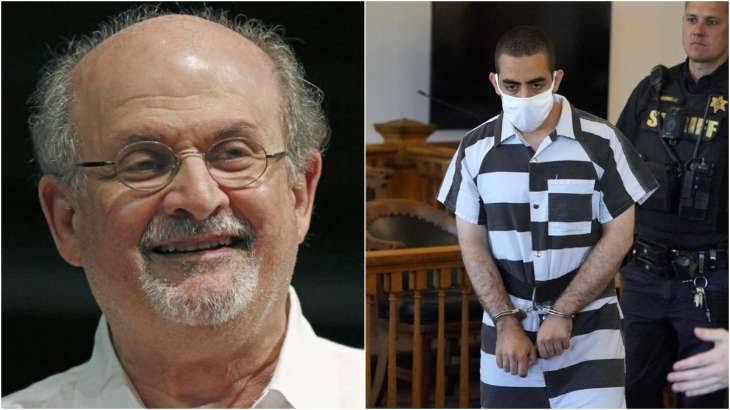Salman Rushdie, The Satanic Verses author, was taken off a ventilator and could talk Saturday, a day after he was stabbed as he prepared to give a lecture in upstate New York.
Rushdie was hospitalized with serious injuries, but fellow author Aatish Taseer tweeted in the evening that he was “off the ventilator and talking (and joking).”
Rushdie’s agent, Andrew Wylie, confirmed that information without offering further details.
Read also
Earlier in the day, the man accused of attacking him Friday at the Chautauqua Institution, a nonprofit education and retreat center, pleaded not guilty to attempted murder and assault charges in what a prosecutor called a “preplanned” crime.
An attorney for Hadi Matar entered the plea on his behalf during an arraignment in western New York. The suspect appeared in court wearing a black and white jumpsuit and a white face mask, with his hands cuffed in front of him.
A judge ordered him held without bail after District Attorney Jason Schmidt told her Matar, 24, took steps to purposely put himself in position to harm Rushdie, getting an advance pass to the event where the author was speaking and arriving a day early bearing a fake ID.
“This was a targeted, unprovoked, preplanned attack on Mr. Rushdie,” Schmidt said.
Public defender Nathaniel Barone complained that authorities had taken too long to get Matar in front of a judge while leaving him “hooked up to a bench at the state police barracks.”
“He has that constitutional right of presumed innocence,” Barone added.
Rushdie, 75, suffered a damaged liver and severed nerves in an arm and an eye, Wylie said Friday evening. He was likely to lose the injured eye.
The attack was met with shock and outrage from much of the world, along with tributes and praise for the award-winning author who for more than 30 years has faced death threats for The Satanic Verses.
President Joe Biden said Saturday in a statement that he and first lady Jill Biden were “shocked and saddened” by the attack.
“Salman Rushdie — with his insight into humanity, with his unmatched sense for story, with his refusal to be intimidated or silenced — stands for essential, universal ideals,” the statement read. “Truth. Courage. Resilience. The ability to share ideas without fear. These are the building blocks of any free and open society.”
Rushdie, a native of India who has since lived in Britain and the U.S., is known for his surreal and satirical prose style, beginning with his Booker Prize-winning 1981 novel Midnight’s Children, in which he sharply criticized India’s then-prime minister, Indira Gandhi.
The Satanic Verses drew death threats after it was published in 1988, with many Muslims regarding as blasphemy a dream sequence based on the life of the Prophet Muhammad, among other objections.
Rushdie’s book had already been banned and burned in India, Pakistan and elsewhere before Iran’s Grand Ayatollah Ruhollah Khomeini issued a fatwa, or edict, calling for Rushdie’s death in 1989.

